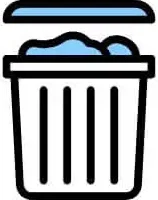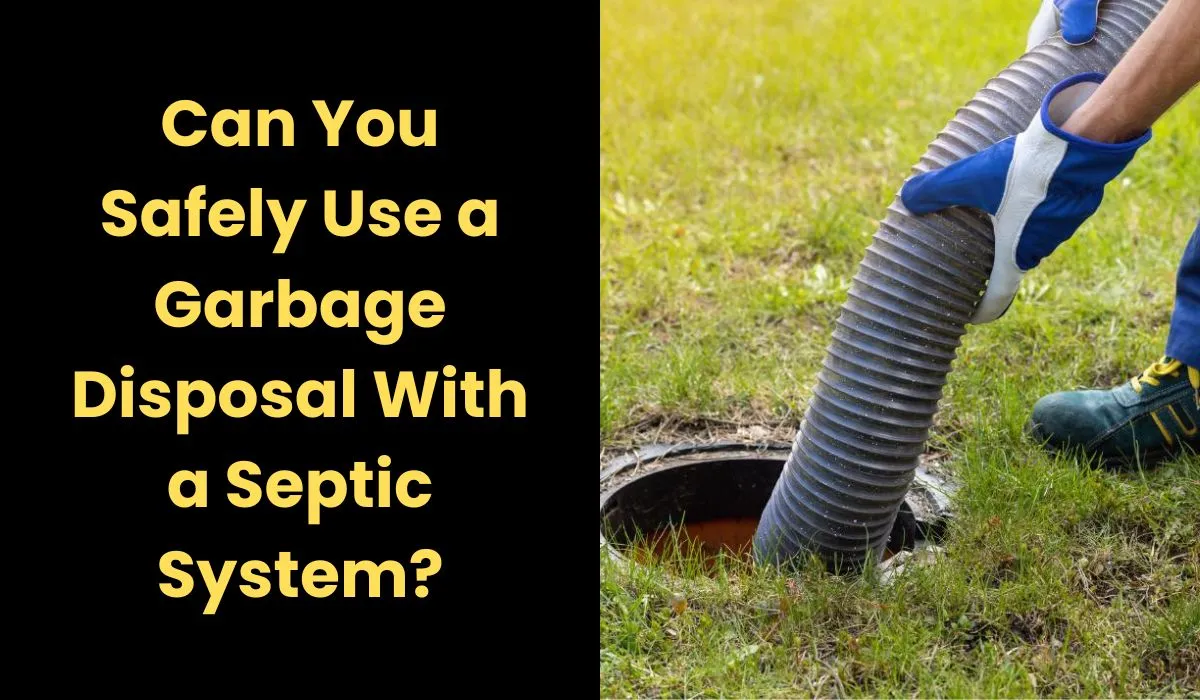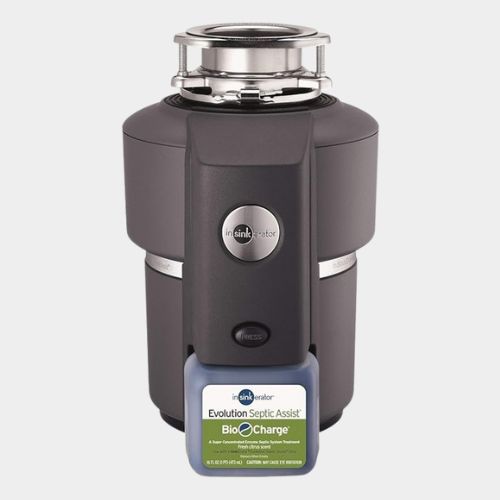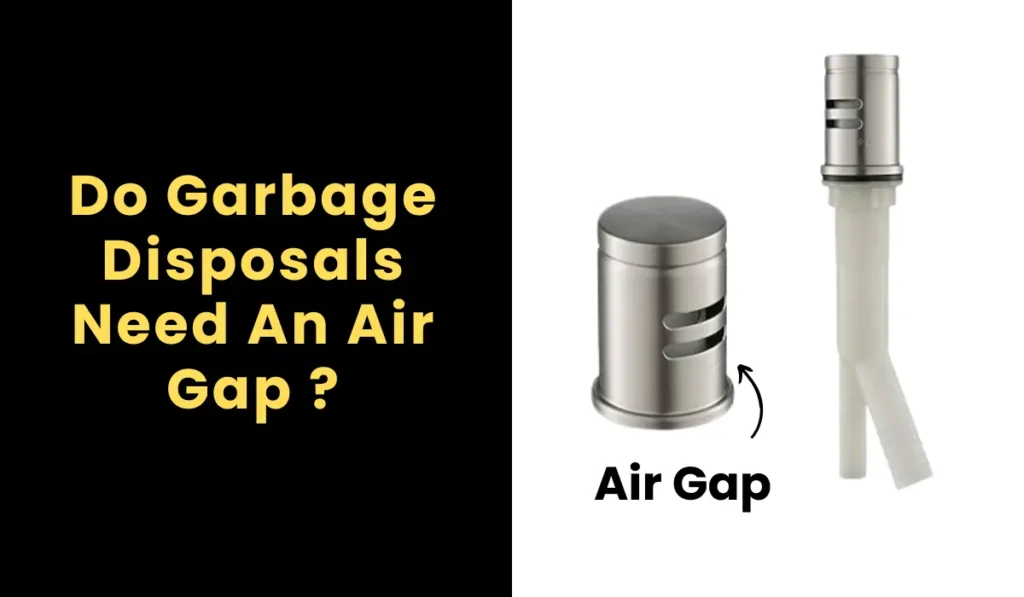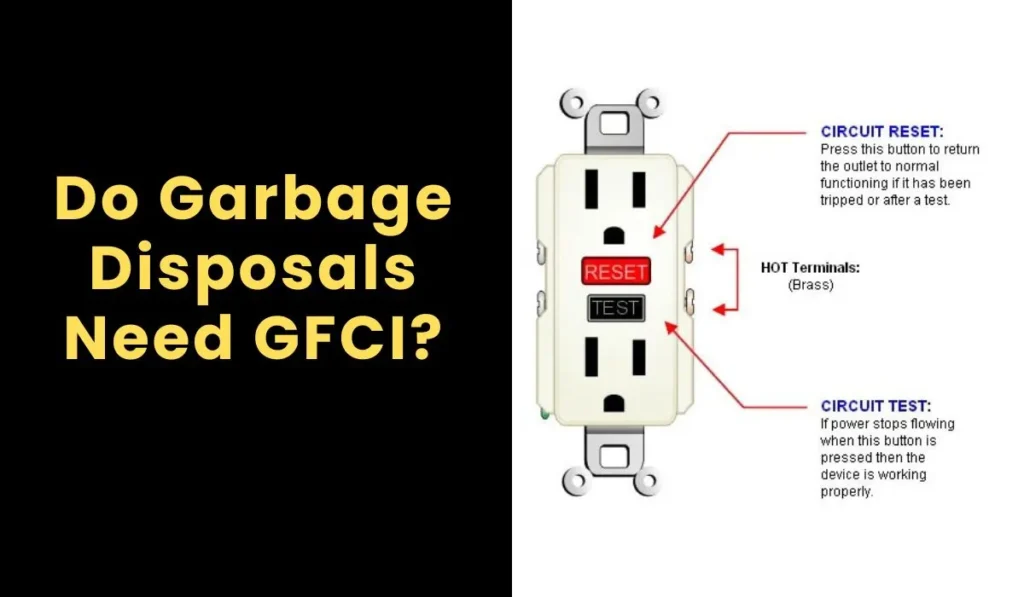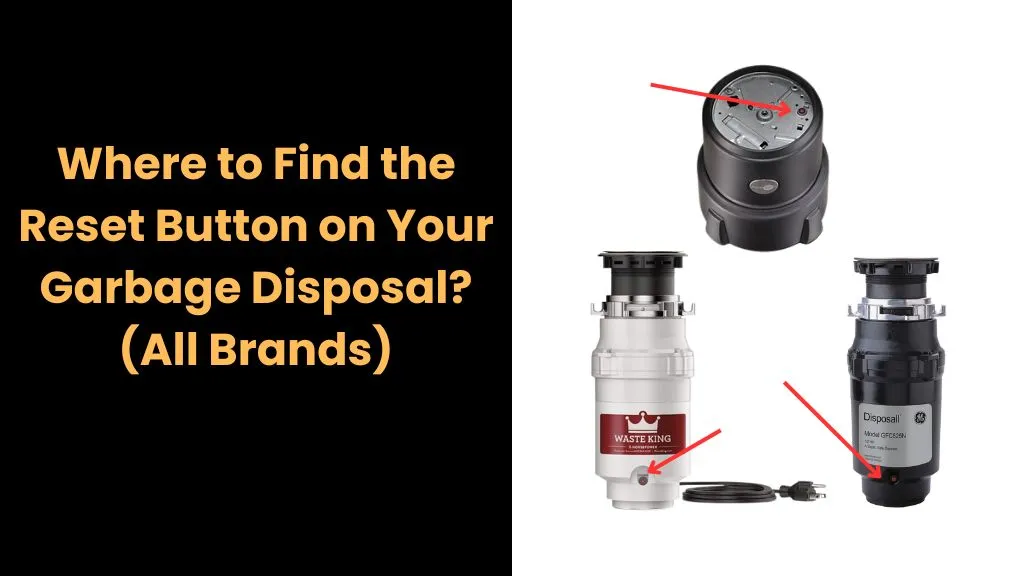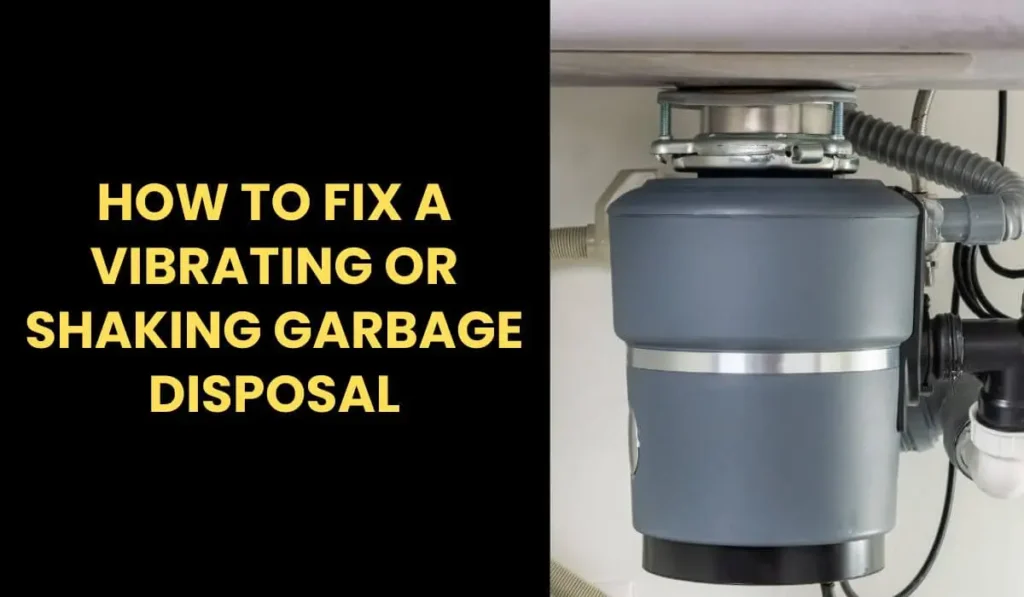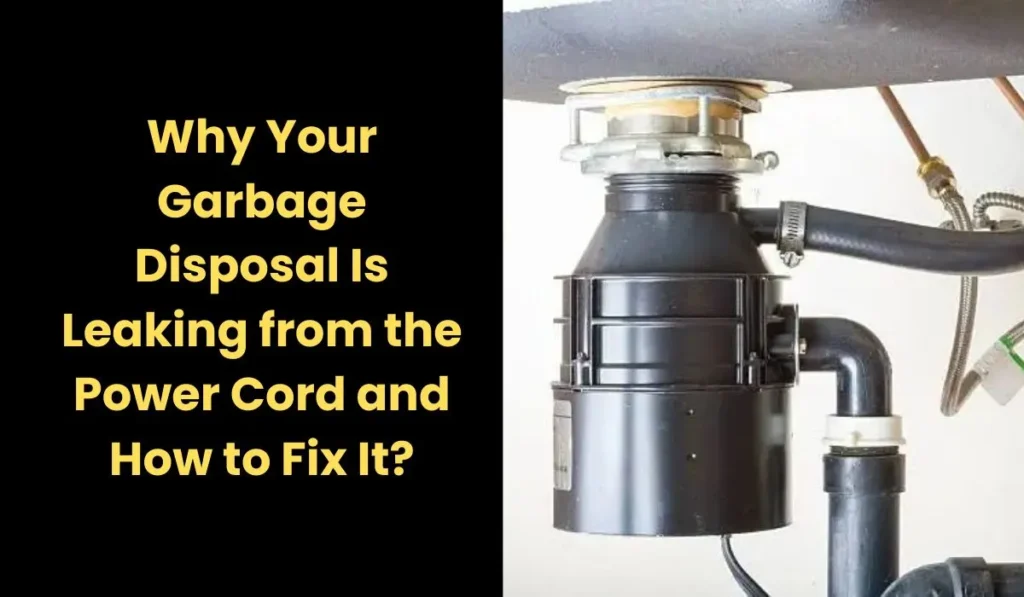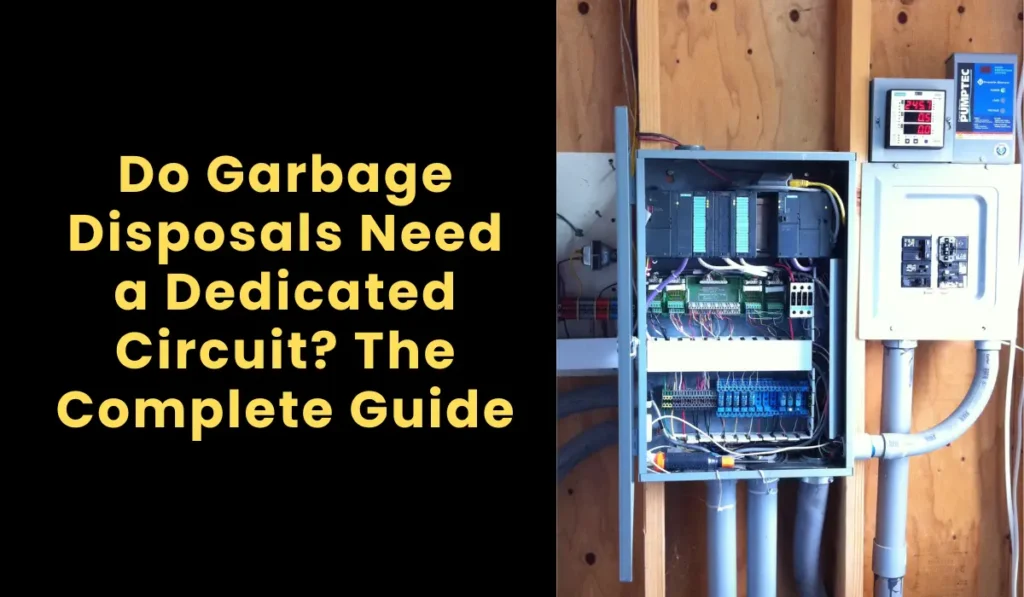Can You Safely Use a Garbage Disposal With a Septic System?
Some people believe using a garbage disposal with a septic system will overwhelm the system and lead to expensive issues. But that’s not really true! You can easily operate a garbage disposal with a septic system provided you keep two things in mind. First and foremost, you’ll need to have a septic tank that is big enough to accommodate the additional waste. Second, all that should go down the drain is food waste or cooking grease. Although grease is frequently blamed for clogs, small amounts from cooking are typically fine for your system.
In Short: Garbage disposals and septic tanks can be an effective combination, provided that your tank is the right size and you are careful about what you put down the drain.
Septic Tanks: What Are They and How Do They Work?
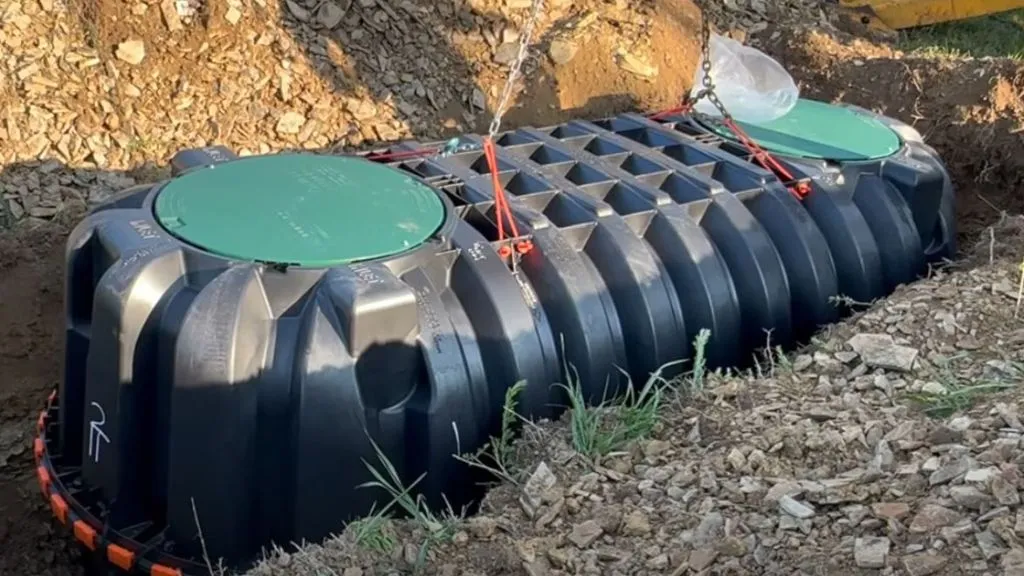
A septic tank is a buried tank where wastewater from your household, such as toilet flushes, clear out from your home. Its primary role is preventing human waste from contaminating nearby groundwater or surface water.
It generally consists of two parts: a primary chamber (in which waste settles) and a secondary chamber (where air helps break things down).
As water and waste from your house pour into the tank, solids sink to the bottom, where natural bacteria break them down. The residual liquid, known as effluent, exits into a pipe and flows into a leach field or seepage bed. this process percolates contaminated waters through soil safely.
Thinking About Adding a Garbage Disposal?
And if you have a garbage disposal in mind, you’ll want to confirm your septic tank is large enough to accommodate an increased waste load. If it is too small, it can lead to clogs or backups in your plumbing system.
What If Your Septic Tank Is Too Small?
If you have a septic system that isn’t large enough, you have a couple of options:
- An extension chamber (an auxiliary or side-arm system) can be added for, typically, $4,000 to $5,000.
- Or, of course, you can skip the whole garbage disposal part and compost your food scraps.
Further Reading: What Is a Septic Tank and How Does It Work? (Full Guide)
How a Garbage Disposal Can Impact Your Septic System
A garbage disposal pulverizes food scraps into small enough bits to be flushed away along with water down the drain. These tiny chunks then flush into your homes septic system. Septic tanks rely on bacteria to break down waste. But a garbage disposal leads to a far greater amount of food waste flowing into the tank, and more work for the bacteria.
Not only does it increase the amount of scum on the surface — it also means more solids settling to the bottom of the tank to slowly decompose.
The upside: Because the food is ground up, it tends to break down quickly and not overwhelm the system — so long as your septic tank is big enough.
If your septic tank is too small, the bacteria may not have time to digest all that surplus food before the tank fills, potentially leading to overflows or other problems in the system. That’s why the size of the septic tank matters a great deal if you intend to use a garbage disposal.
What Size Septic Tank Do You Need If You Have a Garbage Disposal?
There isn’t any special witchcraft for sizing a septic tank with a disposal. A properly sized tank should already have no trouble dealing with the added waste from the disposal.
The size of a septic tank is primarily determined by the number of people who live in the home — or, more specifically, the number of bedrooms.
For instance, in a five-bedroom home, a 1,500-gallon septic tank is often sufficient.
When determining the size of a tank, professionals will take into account the following:
- The amount of water the home uses each day.
- How long waste should be held in the tank (the “detention time” — generally a few days) so that solids have time to sink to the bottom.
- How much muck will accumulate over three years or so.
Here’s a rough guide to septic tank size based on the number of bedroom:
| Number of Bedrooms | Recommended Septic Tank Size |
|---|---|
| 2 Bedrooms | 750 gallons |
| 3 Bedrooms | 1000 gallons |
| 4 Bedrooms | 1250 gallons |
| 5 Bedrooms | 1500 gallons |
Further reading: How to Calculate the Right Septic Tank Size for Your Home
How to Prevent a Garbage Disposal From Overloading Your Septic Tank
1. Use Septic-Safe Additives
If you are concerned about your garbage disposal adding too much waste to your tank, especially if you are on a septic system, septic-safe additives might be beneficial. These additives increase the bacteria that digest food scraps, lightening the load on your system.
But not all additives are harmless. You should always go for products that contain safe ingredients such as nitrogen, potassium, and enzymes — and stay away from toxic chemicals. Always review government or water company recommendations when choosing an additive.
2. Check your garbage disposal before putting anything in it
Don’t Use Bleach, Lye, or Other Septic-System Additives & Cleaners:
- Lye is caustic and can harm your pipes.
- Helpful bacteria that your septic system needs to function properly can be destroyed by bleach.
- Phosphates can also sicken bacteria and accelerate corrosion of metal parts.
Instead, use safe biological additives such as BioWonder or Septic Saver that encourage a healthy system.
3. Don’t Overuse the Garbage Disposal
Consider your garbage disposal an aide — not a trash can. Avoid putting all food waste down the drain, particularly after large meals or parties.
Using your garbage disposal too much can overload both your septic tank and the pipes involved with it, so you could encounter issues over time. You’ll extend the life of your septic system by sending the least amount of waste into it.
4. Avoid Dumping Large Amounts of Bleach or Harsh Chemicals
Small amounts of bleach sitting in standing water you use for everyday cleaning is usually ok, but pouring a bunch of bleach or harsh cleaners down your septic tank will kill off the good bacteria that live inside your septic tank.
Without sufficient bacteria, solids won’t break down effectively, and that can lead to big problems. So, it’s valuable to be mindful about chemicals and not to bring a lot of them home..
Do You Need to Pump Your Septic Tank More Often If You Use a Garbage Disposal?
For a lot of people, there is the idea that if you use a garbage disposal, you will have to pump your septic tank more often — and that’s not strictly true. Recent studies indicate that while garbage disposals do add to the solids, the food particles are so finely ground that they decompose easily. Therefore, they have little impact on how often you need to pump your tank.
As I mentioned earlier, a septic tank of the right size is super important if you want to use a garbage disposal. And when more solid waste enters the water, it takes longer for everything to settle and more sludge to accrue at the bottom of the tank. If the septic tank is overloaded, you’ll need to pump your septic tank.

Best Garbage Disposal For Septic Systems
As long as your septic system is correctly sized, you can use any garbage disposal. Best Garbage Disposals for Septic Tanks The following are some of the top rated garbage disposals that are suitable for septic tanks:
1. InSinkErator Evolution Septic Assist
2. Waste King L-3200
Conclusion
It’s not as dangerous for a septic system when it comes to using a garbage disposal as many would believe — as long as you are doing it the proper way. Ensuring that your septic tank is the proper size, being mindful of what you put down the disposal, and practicing septic-safe habits such as refraining from using harsh chemicals and supporting bacteria health can allow you to have the convenience of a garbage disposal without destroying your septic system.
Ultimately, though, moderation and consistency are key. Think of your garbage disposal as a teammate, not a trash can, and watch what your septic tank wants. If you follow these simple habits, you should be able to have your cake and eat it, too — easy kitchen cleanup without having a fat-rich breakdown in the septic works.
The Author

Muhammad Nabeel Dar has worked in the waste management industry for over 10 years, specializing in residential waste systems and kitchen efficiency solutions. He writes about practical home improvements, cost-effective appliance choices, and sustainable waste management practices that help homeowners make informed decisions. His hands-on experience with both commercial and residential waste systems provides unique insights into what actually works well in real-world home environments versus what just sounds good in marketing materials.
